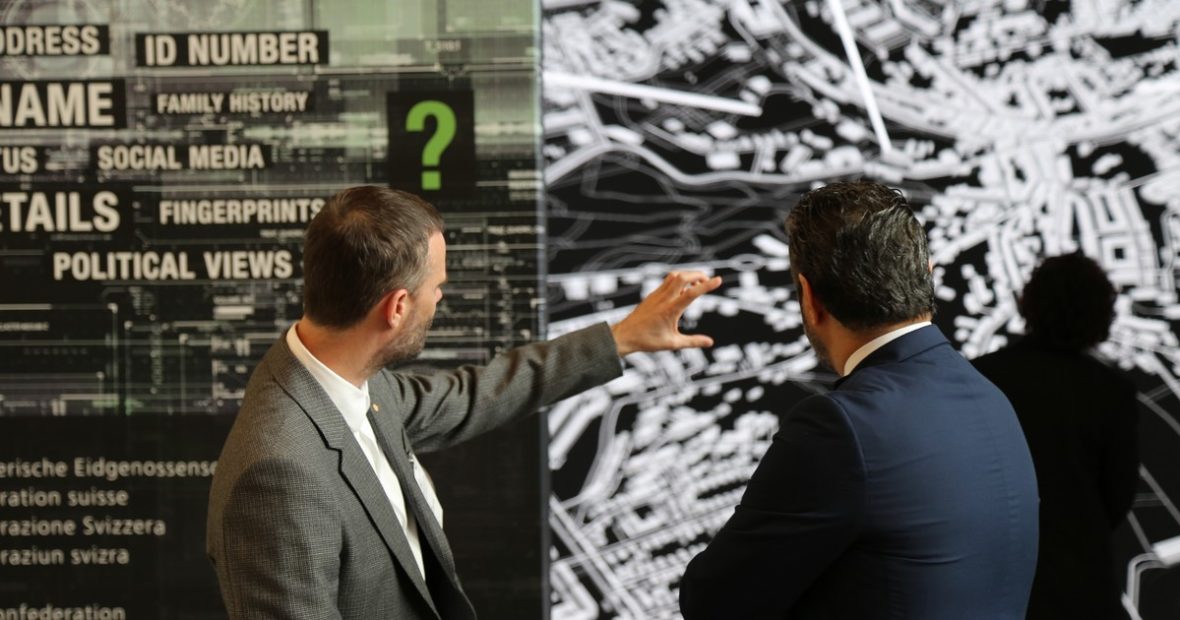There is no escaping the life-changing and life-endangering impact that digital technologies are having on people affected by conflict.
Digital threats such as surveillance, cyber-attacks, misuse of personal data, misinformation and disinformation are all-pervasive.
And these risks continue to evolve rapidly with new technologies such as generative artificial intelligence (AI) joining an ever-expanding list of digital dangers.
For the past five years, the ICRC has been at the forefront of efforts to improve protection through its Digital Dilemmas immersive experience, which is available in eight languages.
“The aim of this project is to really sensitize people to the impact of digital technologies in conflict – on humanitarian organizations and, more importantly, civilians,” says Philippe Stoll, the ICRC’s senior techplomacy delegate and creator of Digital Dilemmas.
“People can probably imagine what it’s like to be tortured; they can feel hunger. But things like artificial intelligence or surveillance are more subtle, less tangible, so we created an environment where they can be experienced.”
Another project aim is to influence debate on digital threats among governments, international organizations and initiatives such as the United Nations Global Digital Compact and the 34th International Conference of the Red Cross and Red Crescent.
Stoll also hopes Digital Dilemmas will increase awareness among the technology sector itself on the need for action against rising digital risks.
Since the multimedia initiative was launched in 2019, more than 100,000 people have experienced the digital dilemmas facing civilians.
Challenges include having to decide whether to share personal data to access aid, or making life-and-death decisions based on conflicting information that may not be genuine.
Most of the time, there are no good choices, only less bad ones.
New content, new experiences
Funded by the Swiss government and the ICRC’s Innovation Team, the Digital Dilemmas experience was recently updated and upgraded to integrate new risks such as deepfake AI.
The new version was unveiled in May at the UN in New York during Protection of Civilians week. Senior diplomats from more than 100 countries attended, with three ambassadors mentioning the experience during their speeches to the UN Security Council.
It now covers seven topics:
- Disinformation
- Biometrics
- Data protection
- Connectivity
- Surveillance
- Artificial intelligence
- Civilians in conflict.
“The tagline remains the same: that digital risks have real life consequences. But we have added new elements to reflect the increasing digitization of humanitarian crises,” explains Stoll.
Multiple formats
The Digital Dilemmas experience is available online as well as in four interactive, in-person formats: photo exhibition; basic interactive exhibition; large interactive space; and full immersive installation.
Over the past five years, the Digital Dilemmas experience has been shown in Geneva, Dubai, Luxembourg, Paris, Zurich, San Francisco and now New York. Another ten locations are in the pipeline.
“The next step is to develop a toolkit that would allow ICRC delegations and other potential partners to access Digital Dilemmas in different sizes and formats, from a two-hour session on a laptop to a six-month exhibition,” adds Stoll.
“We want to be flexible enough so that depending on the needs, depending on the audience, depending on the space, depending on the budget, you can experience Digital Dilemmas wherever you are.”
If you would like to learn more about Digital Dilemmas, please contact Philippe Stoll pstoll@icrc.org

